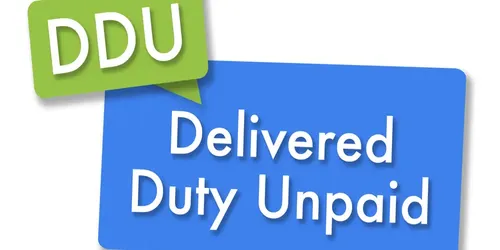The Importance of Having a Reliable Foreign Provider When Expanding Internationally
Dec 06, 2024 By Darnell Malan
As you expand your business across borders, many business people overlook another vital consideration: finding a reliable foreign exchange provider. In today's increasingly interdependent global economy, your company's bottom line is at the mercy of how well you can manage currency fluctuations and cross-border transactions.
The Importance of Reliable Foreign Exchange When Expanding Overseas

A reliable foreign exchange provider becomes indispensable for any business when expanding into foreign markets. Large fluctuations in currency markets can significantly impact your bottom line, and having a trusted partner helps you traverse these financial waters.
Mitigating Currency Risk
Indeed, the best FX dealer can boast an array of sophisticated hedging tools and strategies against unfavorable currency fluctuations. By using forward contracts or options, a firm can lock its future exchange rates now and shield its profitability from unexpected market movements. Predictability provides a more accurate financial performance and budget forecast, contributing to the business's ability to secure more foreign markets.
Optimizing Cash Flow Management
International transactions involve multi-tiered payment cycles across different currencies. An efficient FX provider simplifies these processes through multi-currency accounts and real-time currency conversion, among other solutions. This efficiency saves time and minimizes the cost of transactions, hence improving cash flow management.
Accessing Expert Market Insights
The top FX providers employ seasoned analysts who monitor the key economic trends and geopolitical events unfolding around the world in real-time. This provides an ideal setting for developing keen market insights, helping businesses understand when to make the deal and adjust their long-term financial plans. Such guidance is equally essential when entering a foreign market or economic uncertainty.
Choosing the Right FX Provider for Your Business Goals
Going international, the right choice of a foreign exchange provider will make all the difference to your business's financial health and growth. Indeed, a good FX partner will influence how you conquer foreign markets and optimize your currency transactions.
Assessing Provider Capabilities
Look for an FX provider with a strong global network coupled with deep market knowledge. The exchange rates should be extremely competitive, the fees low, and the range of currency pairs should be wide. Also, check for their technological capabilities for updating real-time automatic rates and hedging tools that help automate tasks to smoothen your forex operations.
Customized Solutions for Your Needs
Every business has unique FX requirements. A premium provider will take the time to understand your needs and adapt their services to suit. This can include bespoke hedging strategies, multi-currency accounts, or even specialist reporting tools for enhanced financial visibility.
Risk Management and Compliance
Effective risk management plays a vital role in today's unstable markets. The provider should be robust in assessing risks and have ample experience guiding businesses up and down in the currency tides. They should also comply with major international standards, thus safeguarding your transactions and reputation.
Key Currencies and Markets to Consider When Expanding Internationally

When you enter international markets, you need to know about the global currency landscape for your business's financial well-being. Specific currencies and markets hold pivotal positions in the world economy and will necessarily attract your attention once you plan your expansion strategy.
Major Currency Pairs
The U.S. Dollar is the world's primary reserve currency and is often considered the benchmark for international transactions. Key currency pairs to watch include the EUR/USD, GBP/USD, and USD/JPY. These represent the Euro, British Pound, and Japanese Yen, respectively, and they account for a vast portion of the volume in global forex trading.
Emerging Markets
While established currencies dominate the scene, emerging markets can boast exciting growth possibilities. The CNY, INR, and BRL have recently gained significant importance in international trade. While emerging markets could afford opportunities for diversification and growth, they also generally present higher volatility and regulatory complexity.
Managing Exchange Rate Risk and Volatility With FX Tools
Managing the exchange rate risks and volatility is central to financial stability in the unpredictable international business world. The right foreign exchange provider supports sophisticated FX tools that help companies navigate choppy waters.
Hedging Strategies
One of the best methods of hedging involves reducing currency risks. Forward contracts allow firms to lock in an exchange rate that will happen at some point in the future, allowing for certainty with budgeting and pricing. The opposite may involve options contracts, which allow a business the flexibility to have the right, but not an obligation, to sell or buy currencies at a predetermined rate.
Real-Time Market Monitoring
Knowing the movement of markets is crucial. Top-tier FX providers offer real-time currency monitoring tools that let a business track the exchange rate and enable them to set alerts when conditions favor them. This allows firms to make important decisions at the right time and leverage any favorable movement of foreign exchange markets.
Risk Assessment Tools
Advanced risk analysis tools allow quantifying corporate exposure. The tool uses historical data and market trends to provide an indication of potential risks and opportunities arising. Understanding their risk profile will help them devise focused strategies aimed at protecting their bottom line.
Developing an Effective FX Strategy for Cross-Border Growth
Assessing Currency Exposure
Your company's currency exposure is another important factor when expanding globally. This requires some analysis, considering the different types of currencies you will be dealing with and, depending on the possible variation of exchange rates, how it might affect your bottom line. First, examine revenue streams, costs, and investments in foreign markets. This will give an overview of the risks and possibilities of currency movement.
Implementing Hedging Techniques
Once the exposure is pinpointed, a hedging strategy should be one of the options to implement, serving as a countermeasure against currency risk. Forward contracts, options, and swaps are the three most utilized protection tools against adverse exchange rate movements. But remember, hedging is a balancing act between risk management and giving away upside potential. Over-hedging shrinks upside potential inadvertently, while under-hedging exposes you to market volatility.
Leveraging Technology for Real-Time Insights
In today's fast-moving global economy, having a finger on the currency pulse is crucial. Leverage state-of-the-art FX platforms that provide instant market data, analytics, and predictive analytics. These enable swift, well-calculated decisions that can be executed at the right time to take advantage of favorable exchange rates and reshape your strategy in concert with changing market conditions. Remember, an agile FX strategy will help master the complexity of international expansion.
Conclusion
The need for a trusted foreign exchange provider will arise if one is operating an expanding international business. You can leverage experience, expertise in advanced technologies, and extensive networks to attain superior control over currency fluctuations and risks, enabling the best execution of your international transactions.








